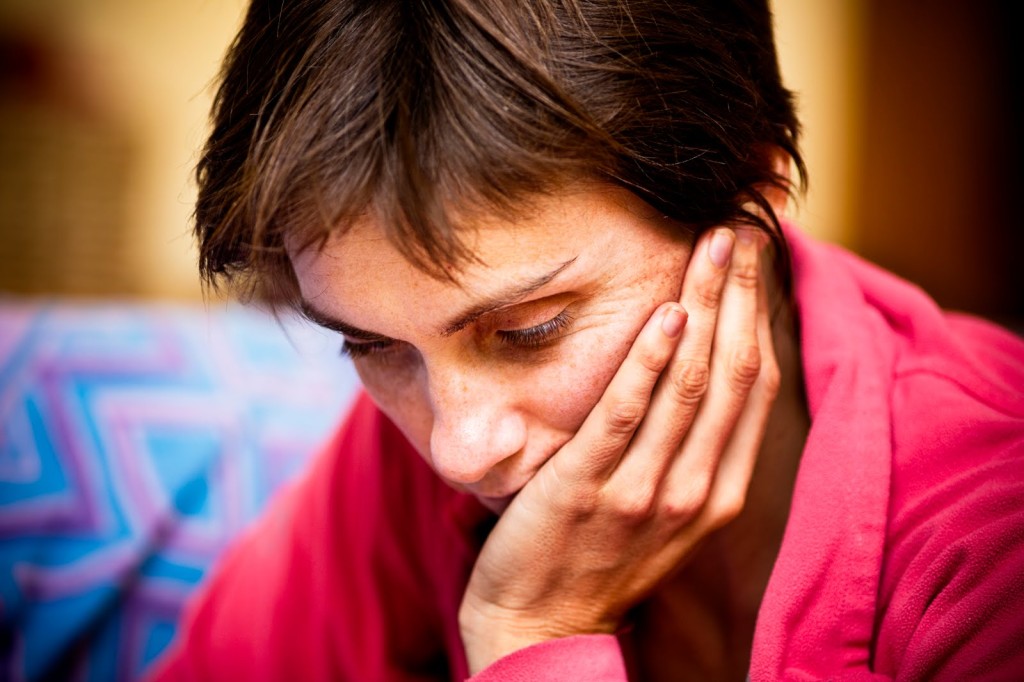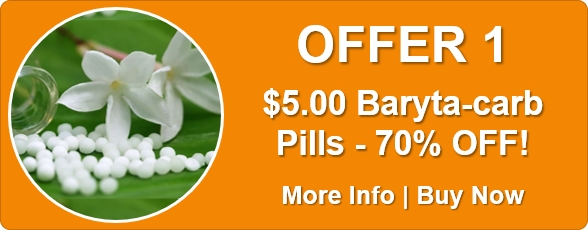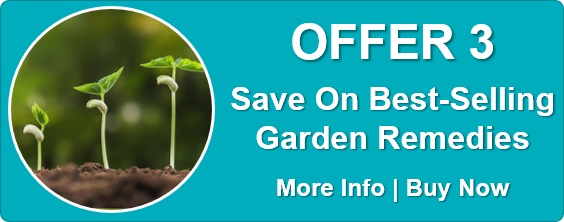Remedies for Disasters (Part 3)
Post-traumatic stress disorders (PTSD) may not be as obvious as piles of rubble or burnt houses, but survivors of disaster and emergency situations can struggle to come to terms with the emotional turmoil for years.
To conclude our series on First Response Homeopathy we’ll look at some of the remedies that bring emotional healing for the psychological trauma inflicted by disasters.
What is Post-Traumatic Stress Disorder (PTSD)?
PTSD is an anxiety disorder caused by either seeing, or being involved in, an emotionally traumatic event. PSTD may occur immediately after the event or many months later.
Sufferers of PSDT often relive the event by going over and over it in their mind or through unwanted flashbacks and dreams. They may become emotionally numb, lose interest in daily activities and have a sense of hopelessness or extreme anxiety about the future. Concentration is difficult, sleep disorders are common and the person may be oversensitive or irritable to stimuli or people.
Sufferers can develop depression or anxiety-related symptoms such as agitation, dizziness, palpitations, sweatiness and dryness of mouth. ‘Survivor guilt’ (feeling guilty about what happened) is common.
Not everyone who has lived through a disaster will experience PTSD – it depends on physical and psychological make-up, past experiences, the intensity of the trauma, and the amount of social support a person can call upon following the event.
General Treatment
Standard methods of helping people with PTSD include counselling, support groups, and anti-anxiety medications or sedatives. Some sufferers of PTSD turn to illicit drugs or alcohol as a way to self-medicate, but all drugs, whether recreational, legal or illegal, have dangerous or addictive side-effects.
Support groups and certain counselling approaches are much safer and, surprisingly, can even have a homoeopathic effect on the problem. Homeopathy is not just about remedies, but encompasses anything that produces similar feelings or effects to the symptoms being treated.
For example, when a person is encouraged to revisit a traumatic event during counselling or in a group, a therapeutic ‘like treats like’ (homeopathic effect) takes place. It is much more helpful than suppressing symptoms through medication or living in denial. Neither of the last two approaches bring deep healing, but often worsen health.
Homeopathic Help
Homoeopathy has numerous remedies that help with the symptoms of post-traumatic stress. Let’s look at some of them and the types of experiences they can be used for.
Erica’s Story: Anxiety and Panic Attacks
Five years ago, Erica lost her home and everything she owned to a bushfire. She had always been a nervous person but since the trauma of that event her anxiety intensified. She was unable to sleep through the night and would wander around the house at all hours, preparing for the day ahead. She also suffered burning pain in her stomach which certainly wasn’t conducive to a good night’s sleep. Her family said she had become a hypochondriac and neat-freak, and that she was overly critical. Erica just wanted everything to be ‘right’. She lived in fear of something happening to her family and of once again losing her possessions. Panic attacks began to plague her. The first was in the middle of the night and she was rushed to hospital with everyone thinking it was a heart attack. Since then, Erica’s family had been telling her that she must do more to relax; Erica felt like screaming at them.
If only Erica and her family had known about Arsenicum album (Ars.) earlier! It can be a fantastic remedy for post-traumatic stress disorder when the following symptoms are present:
Anxiety, restlessness, fussiness, irritability, and discontentment. Feelings of insecurity. Anxiety about what may happen to them or family members. Fear of being alone. Excessive dependence on others. Not easily reassured. Panic attacks and anxiety about health matters – real or imagined. Worries about finances or poverty. Highly fastidious – everything has to be neat and organised or anxiety becomes overwhelming. Symptoms worse between 12 midnight and 2am. Sleeplessness from anxiety. Chilliness. Physical complaints with burning pains – better for warmth. Common complaints: gastritis, stomach or duodenal ulcers, anorexia, asthma, Raynaud’s disease, and cancer.
With a single dose of Arsenicum album, Erica’s anxiety began to soften. Appropriate follow-up doses resolved her symptoms further and Erica returned to a more comfortable and satisfying life.
Michael’s Story: “They’d Be Better Off Without Me.”
Michael was the driver in a car crash, killing his young son Ryan and two occupants of the other car. He still carries the grief of the event, but throws himself into his work where he is a valued and reliable employee. Only his wife Kelly knows that his seriousness and strong sense of responsibility mask the depression and guilt that have dogged him since the accident. What she doesn’t know, though, is that Michael thinks everyone would be better off without him and has made tentative plans to take his own life.
A remedy that could help Michael is Aurum metallicum (Aur.). It is commonly used to treat the following symptoms:
Depression from grief, failure or shame. Deep depression. Joylessness. Suicidal depression – may think of jumping from a height, or driving into oncoming traffic. Often have strong religious convictions and desire for prayer or meditation. Imagine they have failed or neglected their duty. Thoughts of death are pleasant. Tendency to heart problems. Symptoms are worse at night, especially pains in the bones. Moaning or crying out in sleep.
Note: Deep depression is a serious disorder. Should you suspect that a friend or family member is severely depressed, encourage them to seek the help and support of a trusted health professional as soon as possible.
Wei’s Story: Angered by Injustice
Wei arrived in this country seven years ago as a refugee. He had escaped corruption and persecution in his own country but not before his family home had been burnt to the ground and his parents beaten because of Wei’s involvement in a protest against the oppressive regime. He received very little news from his parents and had become increasingly angry. He was well-known in his local community for his work with other refugees, but his friends were concerned about his increasing belligerence about ‘stupid’ rules and regulations and towards those in positions of authority. They wanted him to take a break from his work before he ended up in trouble again.
It is likely that Wei’s reaction to his past experiences would be helped with a remedy called Causticum (Caust). While several Causticum symptoms seem admirable at first glance, they can result in states of imbalance or excess. It is a remedy for those who are:
Idealistic and sympathetic. Intolerant of injustice – become worried, angry or anxious. Fight for others and for causes. Defiant towards authority. Health complaints often involve stiffness, numbness, tingling or paralysis. Anxiety develops in the evening and with the dark. Craves smoked food. Feels better in rainy weather.
Carmen’s Story: Indifference and Apathy
Carmen lived through a home invasion. She had been watching TV with her husband and two children when three unknown men burst through the door waving knives and screaming obscenities. Carmen’s husband tried to stop them but was knocked to the ground and a knife placed at his throat. Carmen was terrified. She immediately told them where their money and valuables were kept. When they finally left, Carmen collapsed to the floor. Now, three months later and in spite of intensive counselling, Carmen is struggling to recover from the incident. While initially traumatised and anxious, she is now apathetic and indifferent. She finds it almost impossible to get out of bed in the morning and returns to it as soon as her husband and children have left for the day. She loves her children but finds them emotionally exhausting. She is frequently irritable and snappy. Her husband says he has lost the wife he once loved and their marriage is feeling the strain.
The impact of the home invasion has pushed Carmen into what homoeopaths call a ‘Sepia state’. Sepia (Sep.) can help when someone is:
Joyless and indifferent, even to loved ones. Drained of emotional and physical energy. While symptoms are often improved by vigorous activity in early stages, eventually everything becomes too much of an effort. Dread of being alone but also dislike of company. Snappy and irritable or silent and tearful. Dislikes being comforted. Craves chocolate and sour things such as lemons or vinegar. Feels energised by thunderstorms. Menstrual periods often painful or heavy.
Chris’s Story: One Disaster Too Many
Chris had been part of a recovery team sent from Australia to help in the aftermath of an earthquake. It was the sort of work he had done before, but this time it felt different. Back at home, he was struggling to return to a normal life. Whenever he looked at the happiness and relative security of his own family, images would flash before his eyes of the ruined lives he had left behind. Chris’s wife didn’t know what to do. Her husband was known for his caring attitude and strong sense of social responsibility, but this time he wasn’t coping. Whenever she tried to discuss the situation with him he would change the subject or leave the room. He was reluctant to go back to work and was becoming increasingly withdrawn and troubled.
Chris’s reaction to his latest assignment sounds similar to the Carcinosin (Carc.) symptom pattern. Carcinosin can help bring excesses back into balance when someone is:
Very sympathetic. Cares for others. Strong sense of responsibility – tends to take on too much. Sensitive to criticism and easily hurt. Feels guilty about his or her own troubles or sickness. Moved by sad stories. Depression from other people’s problems or prolonged fear and abuse. Loves chocolate, animals, thunderstorms, travel and being by the sea.
Self or Practitioner Treatment?
The immediate problems of injury, shock, panic, exposure and poisoning that follow a disaster can frequently be helped by anyone with a working knowledge of homeopathy. These are the situations discussed in Part 1 and Part 2 of this series.
Chronic emotional problems linked to post-traumatic stress disorders are better managed by a qualified homeopath. A course of treatment with changes in potencies and remedies is likely to be needed – something that is beyond the scope of a home-use kit.
Whether by self-treatment or qualified help, homeopathy has a lot to offer victims in the wake of a disaster. We recommend the following remedies for a basic emergency kit so that you can be well-prepared in case of disaster.
Top 20 Disaster Remedies
Note: Remedies such as prophylactics can be added to the following list. Refer to Part 1 and Part 2 of this article for more information on them and other suggestions.
1. Aconite napellus (Acon.)
For: Panic, fear and shock. Hyperventilation. Anaphylaxis. Measles.
2. Apis mellifica (Apis.)
For: Bites and stings with swelling. Anaphylaxis.
3. Arnica Montana (Arn.)
For: Bruising and damage to soft tissues. Fractures.
4. Arsenicum album (Ars.)
For: Anxiety states. Burning pains better for warmth. Food poisoning. Fractures. Pain that is worse for the slightest movement and better keeping still or firm pressure. Amoebic dysentery. Influenza. Malaria. Measles, Yellow fever.
5. Bryonia (Bry.)
For: Fractures. Pain that is worse for the slightest movement and better keeping still or firm pressure.
6. Carbo vegetabilis (Carb-v.)
For: Near-death states with gasping and flatulence. The ‘corpse-reviver’.
7. Calendula (Calen.)
For: Superficial wounds, grazes and lacerated skin. Infected wounds.
8. Cantharis (Canth.)
For: 2nd to 3rd degree burns, including sunburn. Wasp stings.
9. China officinalis (Chin.)
For: Exhaustion following loss of body fluids such as blood, sweat and diarrheoa. Malaria.
10. Euphrasia (Euphr.)
For: Irritated streaming eyes and nose. Effects of tear gas.
11. Hepar sulphuris (Hep.)
For: Infected and sensitive wounds with splinter-like sticking pains and cheesy odour. Slow healing of wounds.
12. Hypericum perforatum (Hyper.)
For: injuries to nerves and nerve rich areas such as finger tips and the spine. Lacerations and puncture wounds.
13. Lachesis muta (Lach.)
For: Dark red or blue –purple infected tissues . Gangrene. Tarantula bites.
14. Ledum palustre (Led.):
For: Puncture wounds. Sprained and twisted joints. Bites and stings. Lyme disease.
15. Pyrogenium (Pyrog.)
For: Offensive wounds with foul smelling discharges. High fevers from infections. Restless exhaustion and offensive discharges. Prevention of infection following wounds or childbirth.
16. Ruta graveolens (Ruta.):
For tendon or periostium injuries. Sprains and strains.
17. Silicea (Sil.):
Abscesses that drain but won’t heal. Embedded foreign bodies.
18. Staphysagria (Staph.)
For: Cuts and incisions. Violation and rape.
19. Symphytum officinale (Symph.)
For: Fractures. Punctured or ruptured eyeball.
20. X-ray
For: Prevention of chromosomal damage from radiation exposure. Treatment of radiation burns and poisoning.
Dosage Guidelines
For acute problems, remedies can be used in any potency from 6C to 200C but remember, good results are more dependent on getting the remedy right rather than getting the potency right. If none of the above potencies are on hand, dose with whatever one you have available. Because homeopathy is an intrinsically safe system of medicine free of toxic effects, no harm will be done.
How often to dose will depend on the intensity of the person’s symptoms and how quickly they respond to the remedy. Initial doses may be needed as often as every 5 minutes or at intervals of several hours. To find out more about dosing, read: How Often Should I Take a Dose of My Remedy.
Other Articles
Part 1: First Response Homeopathy: Remedies to Use in a Disaster (Disaster Strikes)
Part 2: First Response Homeopathy: Remedies to Use in a Disaster (Mopping Up)





